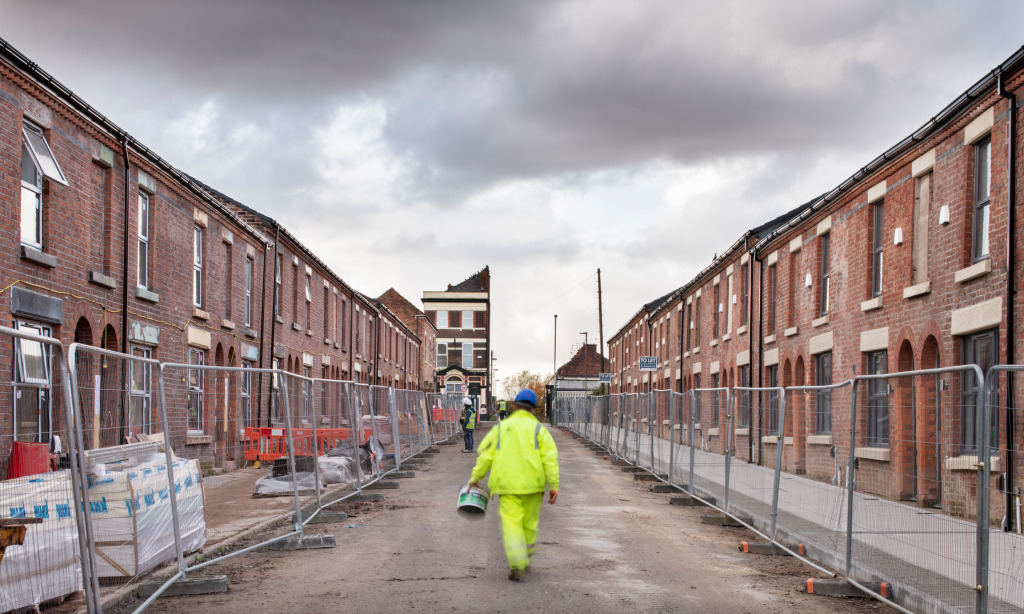North West needs 14,000 new retrofit workers to meet net zero targets
Data released by Historic England highlights that the region could benefit from £1.6bn of direct economic output by making traditional buildings more energy efficient.
The government body has for the first time revealed local data on the estimated need for retrofitting skills to deliver net zero on buildings built before 1919 in order to meet the government’s 2050 target.
Buildings in England are responsible for around a fifth of the nation’s greenhouse gas emissions, with one in five being built before 1919.
According to the data, an average of 14,000 new workers per year will be needed until 2050 to retrofit traditionally constructed buildings in the North West. This figure is double the 7,000 new workers required in Yorkshire and The Humber.
More specifically, Greater Manchester needs around 5,000 new workers every year to reach these targets in the city region. In turn, around £570m of direct economic output would be generated annually.
Liverpool City Region needs around 2,800 new workers every year, generating an annual direct economic output of £320m.
Outlined professions and trades highlighted include, but are not limited to, roofers, carpenters, plasterers, scaffolders, electricians, and painters, as well as directors and surveyors.
In the North West, plumbers are the most sought after profession with the need for 2,000 new workers in that trade every year, compared to 200 directors.
Ian Morrison, director of policy and evidence at Historic England, said: “Prioritising the re-use and retrofit of historic buildings helps to conserve those places that give us a sense of local identity and make us proud – this is also essential for getting to net zero by 2050.
“We urge decision-makers across the country to work with us and act now with this data to build England’s retrofit workforce.”
Joe Crolla, principal skills manager at Greater Manchester Combined Authority, added: “Skills development is acknowledged as one of the key areas of future work in the GMCA Retrofit Action Plan, so refining the evidence base about what professions and skillsets are needed across Greater Manchester is critical.
“It’s important to recognise older buildings in the ambition – with that brings different skills requirements, which we want to develop across our wider construction workforce.”
This data has been released in the same week that the Greater Manchester Combined Authority and CBRE have teamed up to develop a retrofit guide in order to encourage commercial landlords to improve the energy efficiency of their assets.




